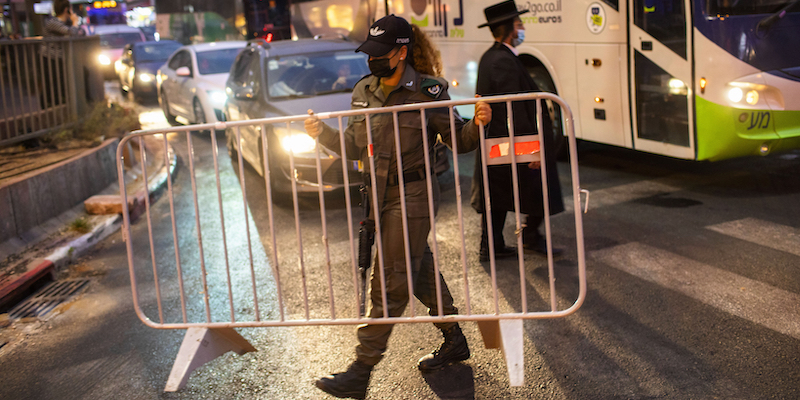Yesterday afternoon the Israeli government imposed a new series of travel restrictions due to the coronavirus pandemic, becoming one of the first countries in the world to decide on a new lockdown after those that occurred in the spring all over the world. The restrictions will take effect from 2pm on Friday, September 18 – that is, the beginning of Rosh Hashanah, the Jewish New Year – and will last until 11 October. The decision was in the air since Thursday 10 September, that is, since the Israeli ministers who make up the coronavirus committee they had approved the establishment of a new lockdown at the suggestion of the government task force, after a significant increase in cases registered in the past two weeks.
“For three months I tried to avoid a lockdown”, he did know the Minister of Health of the coalition government led by Benjamin Netanyahu, Yuli Edelstein: «I did everything I could to ensure that we could live with the coronavirus, with the necessary rules. But due to the circumstances that arose, we had no other choice ». Netanyahu, leaving for the United States where he will celebrate the normalization of relations with Bahrain, in a press conference held shortly before leaving, he admitted that the new measures “will demand a very high price” from the Israelis.
There was a return to talk of drastic measures especially after the data that emerged last week, in which the daily cases twice exceeded four thousand: enormous numbers for a country of nine million inhabitants. Wednesday 9 September, the day before the task force recommended a new lockdown, the Ministry of Health had made it known that 43,455 tests had been performed the day before, with a positive outcome rate of 9 percent. A very high figure that suggests that the positives are even more than those identified. The WHO has in fact estimated that an effective indicator to determine whether a certain country is carrying out an acceptable number of tests is to remain below 5 percent positive swabs for two consecutive weeks.
At the moment there are about five hundred people in serious condition, and the hospitals in the country – especially those in the North – they warned that in the coming weeks they could struggle to manage ordinary patients and coronavirus positives, if infections continue to increase.
The increase in infections is not due to a single reason: according to some, it has to do with hasty reopening of schools and businesses as early as May, large pockets of the population living in vulnerable conditions, such as Arab communities or ultra-Orthodox Jews, and a management very confusing on the part of Netanyahu, already struggling among other things with his trials for corruption, complicated foreign policy maneuvers ed huge protests in his regards.
One factor that some associate with the new increase in cases is the opening of schools, which in Israel restarted on September 1: according to data released by the government quotes yes Haaretz, 40 percent of the newly infected are under the age of 19, while a month ago they made up less than 30 percent.
According to the rules decided yesterday, schools will close for the duration of the new restrictions, as well as shops and restaurants. Israelis will not be able to leave their homes for more than 500 meters, unless urgently needed. Public administration and major private sector companies will remain open but with many restrictions. Prayer for the various Jewish holidays in the coming weeks will be allowed only to groups of ten people in the “red areas”, where the data on the infection are higher, which can become 25 in the less at risk areas.
The decision to impose new restrictions was not unanimously shared within the government. Housing Minister Yaakov Litzman, head of the far-right religious UTJ party, resigned in controversy with restrictions on group prayers, while Labor Minister Itzhik Shmuli explicitly opposed a new lockdown, citing the potentially disastrous consequences for the national economy. During yesterday’s Council of Ministers, according to a reconstruction published in the newspapers, Netanyahu allegedly invited Shmuli and the other dubious ministers to “act as leaders” and make necessary, albeit unpopular, decisions.
–


